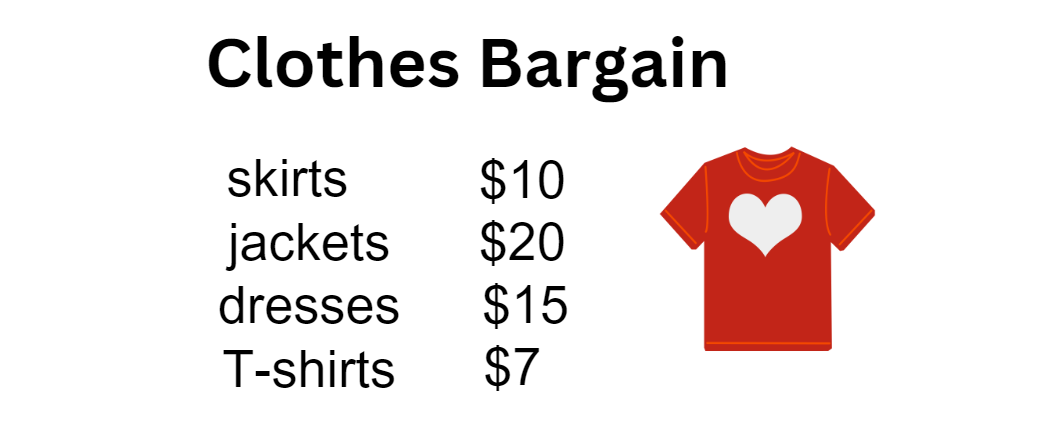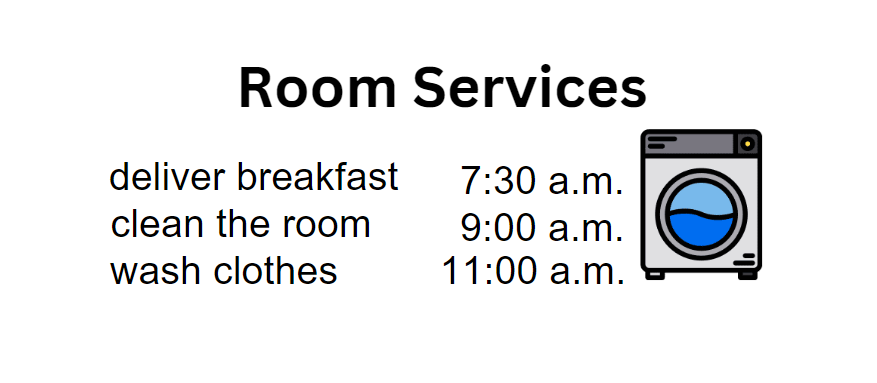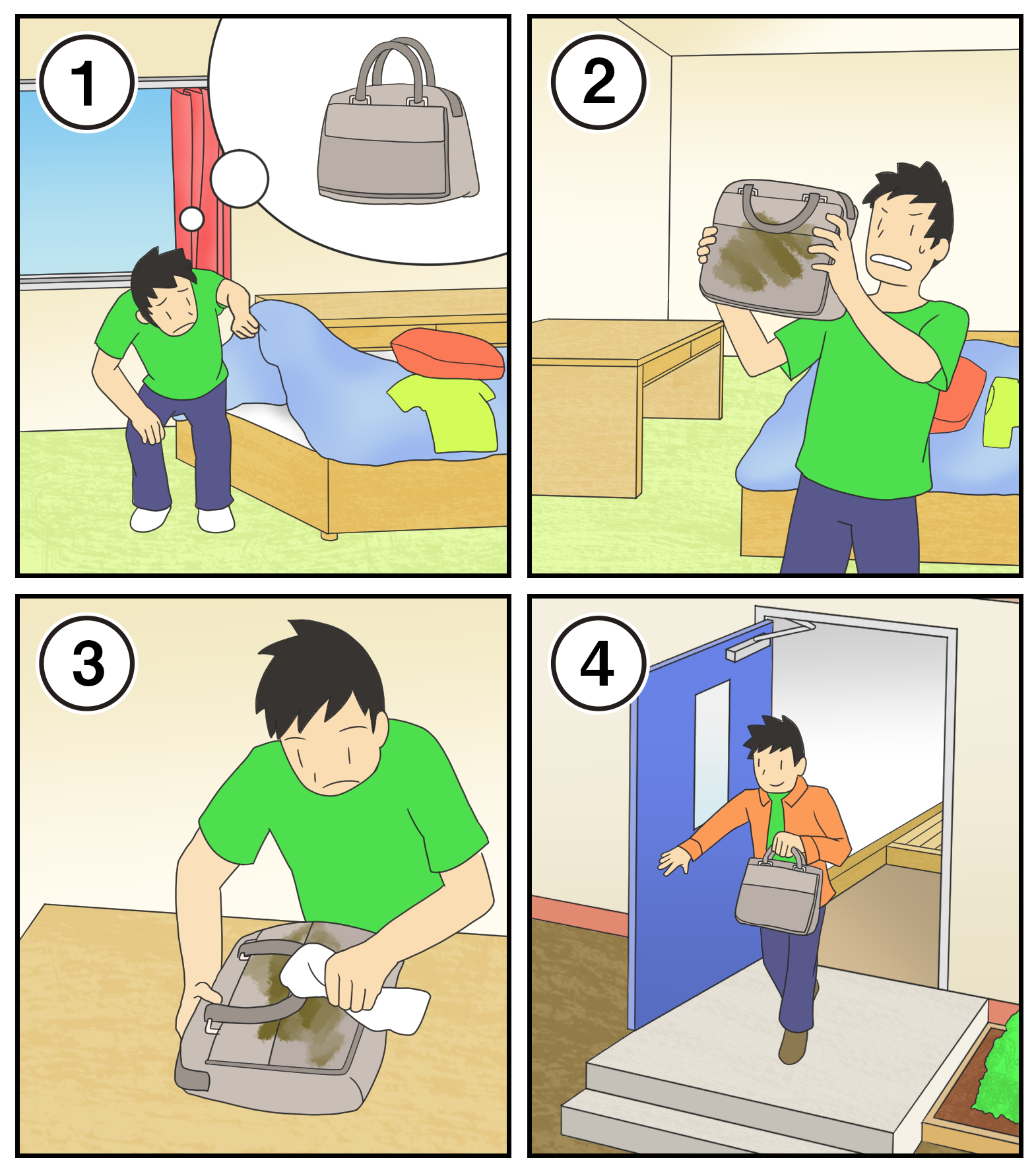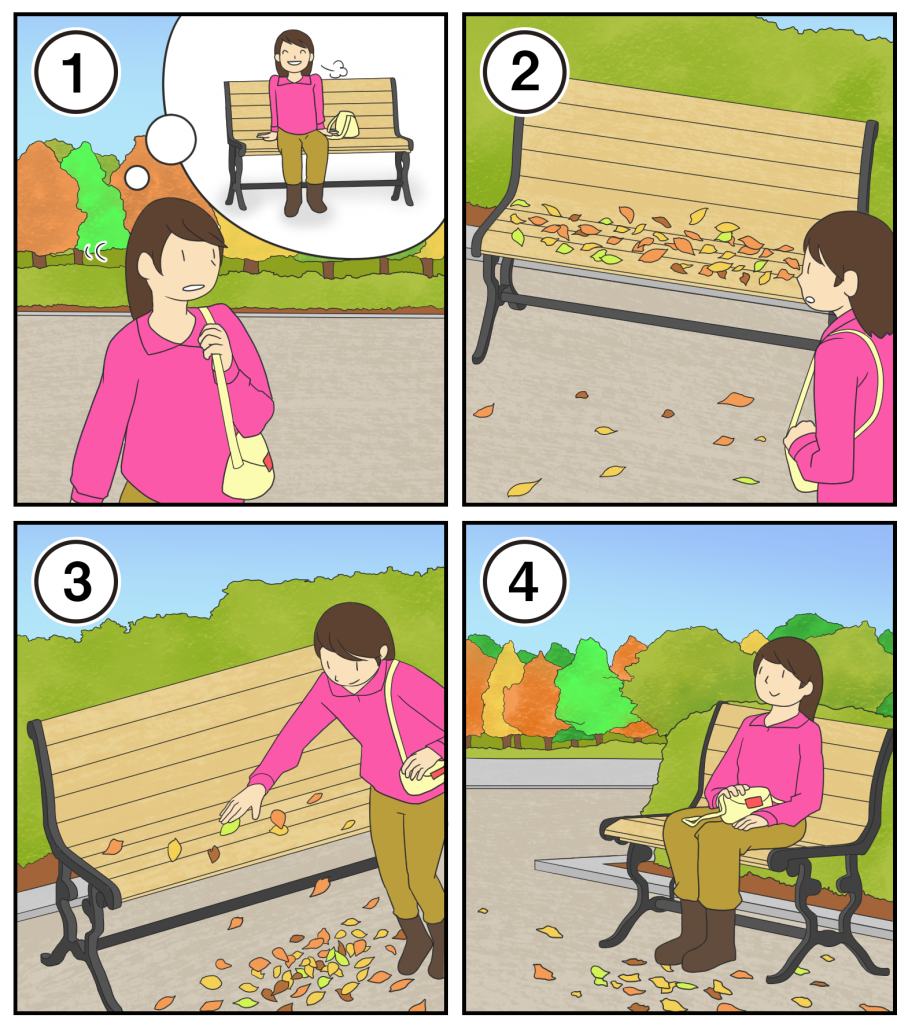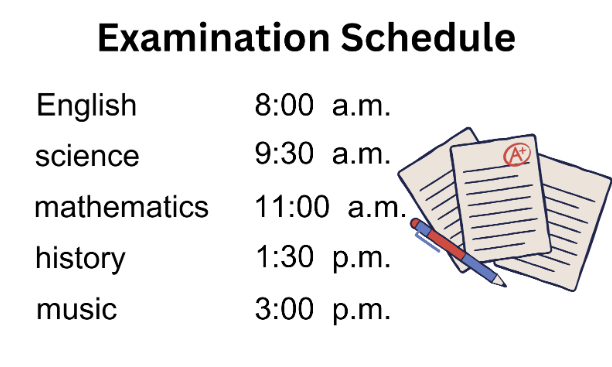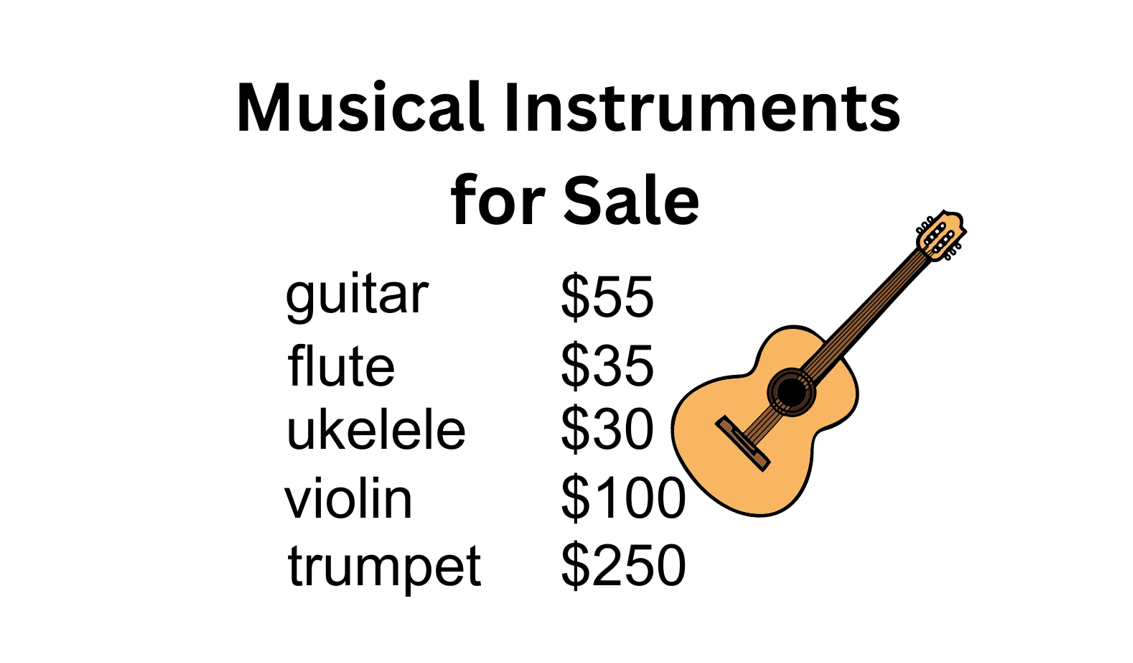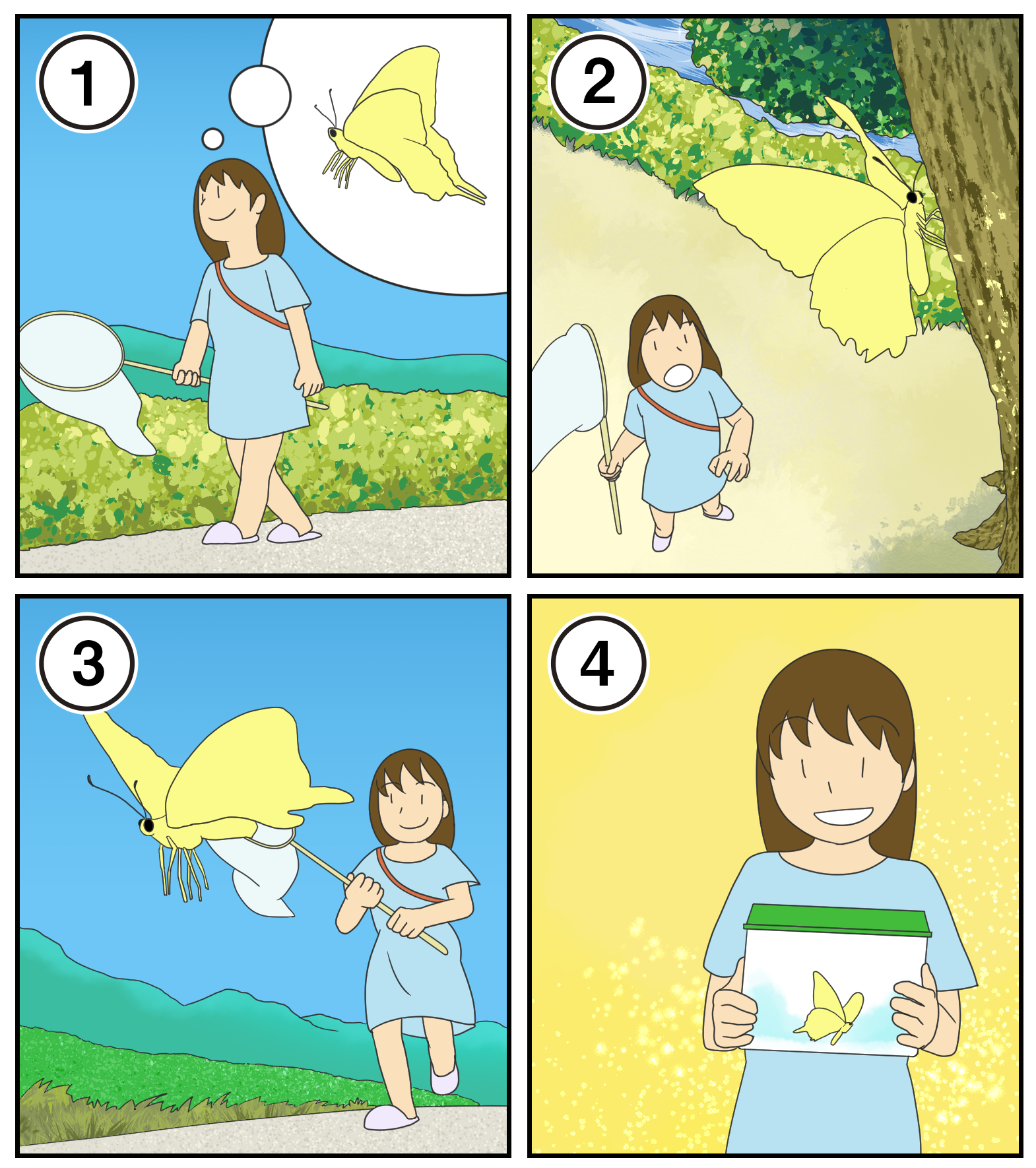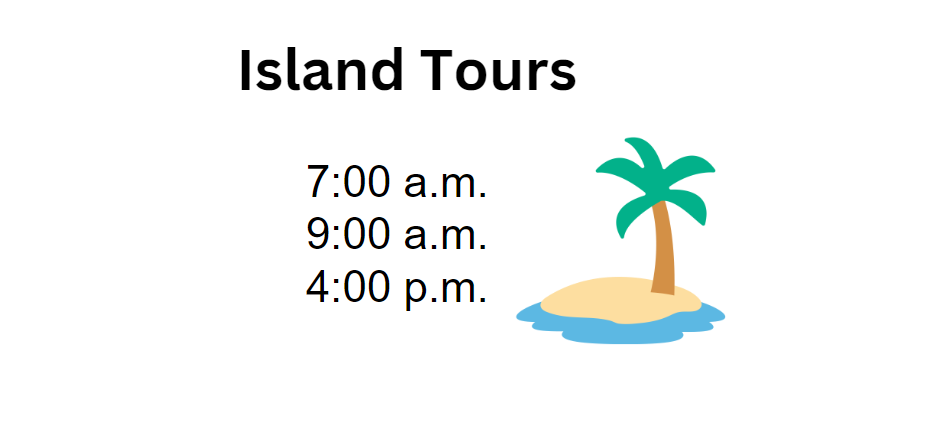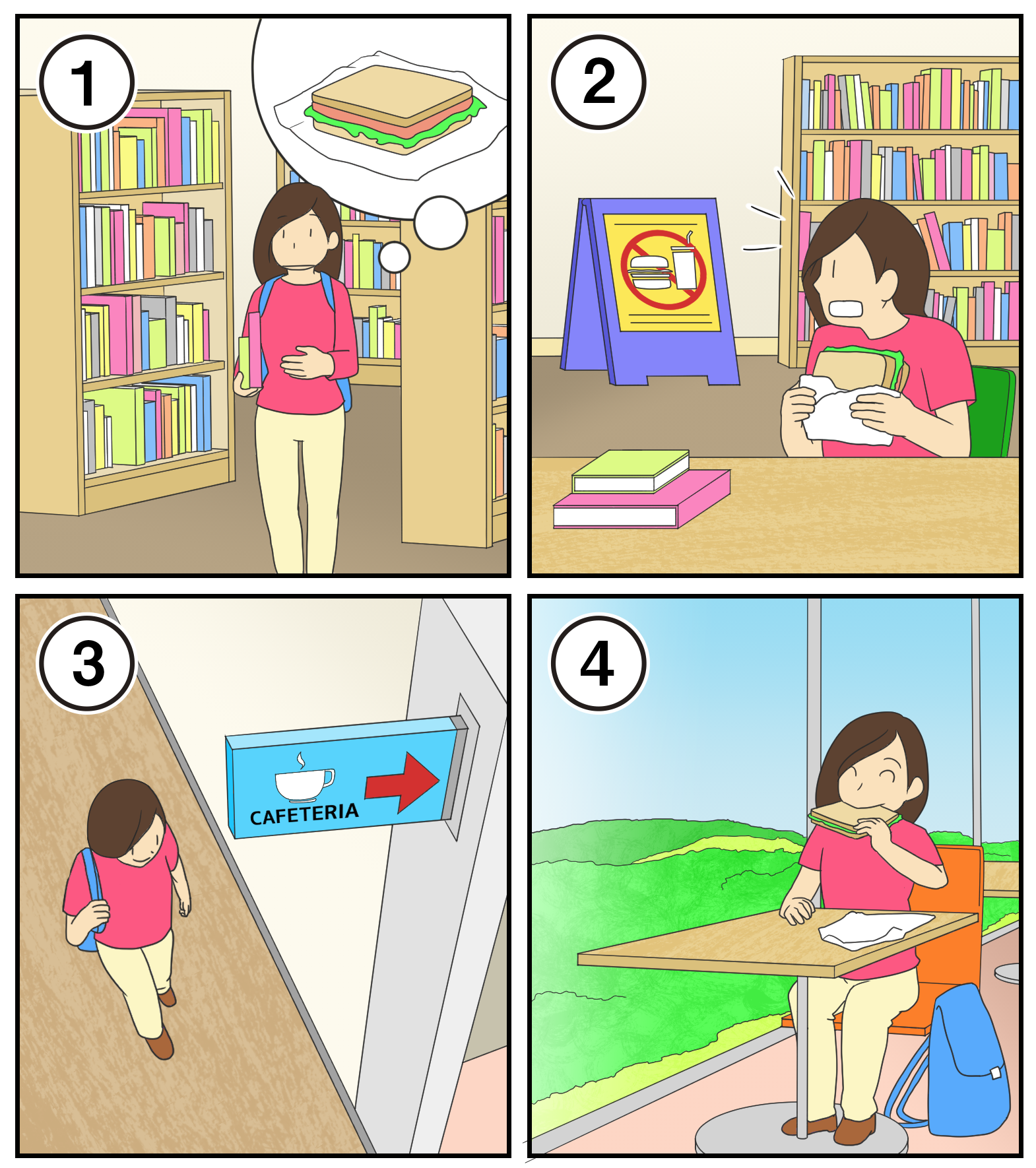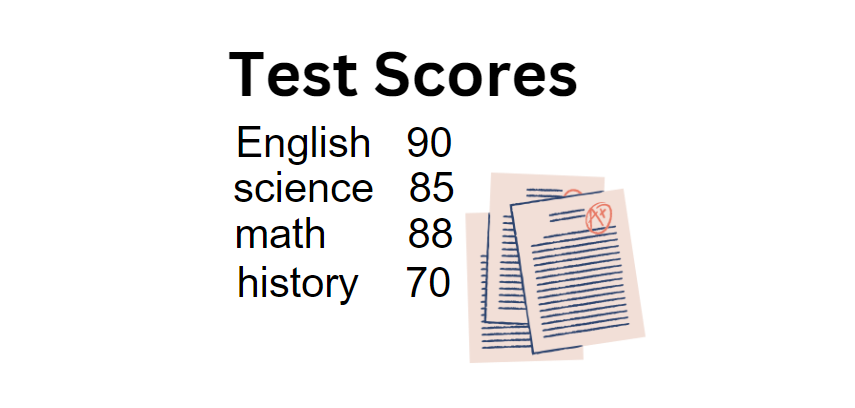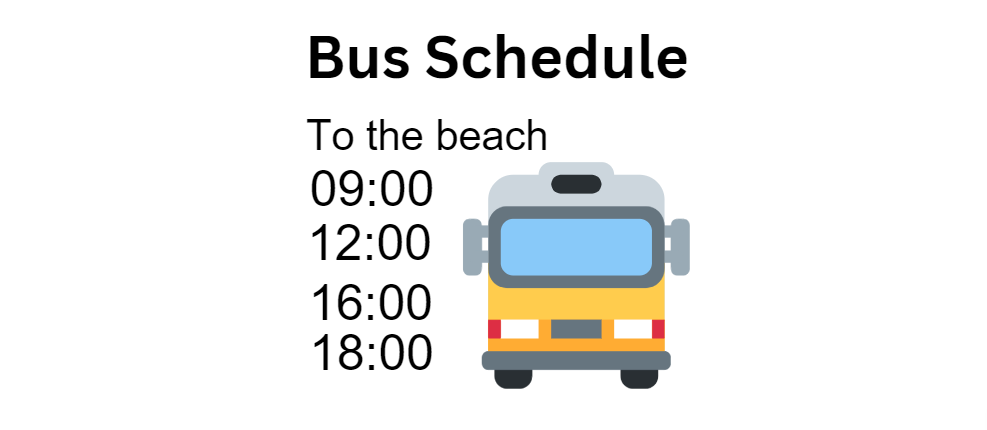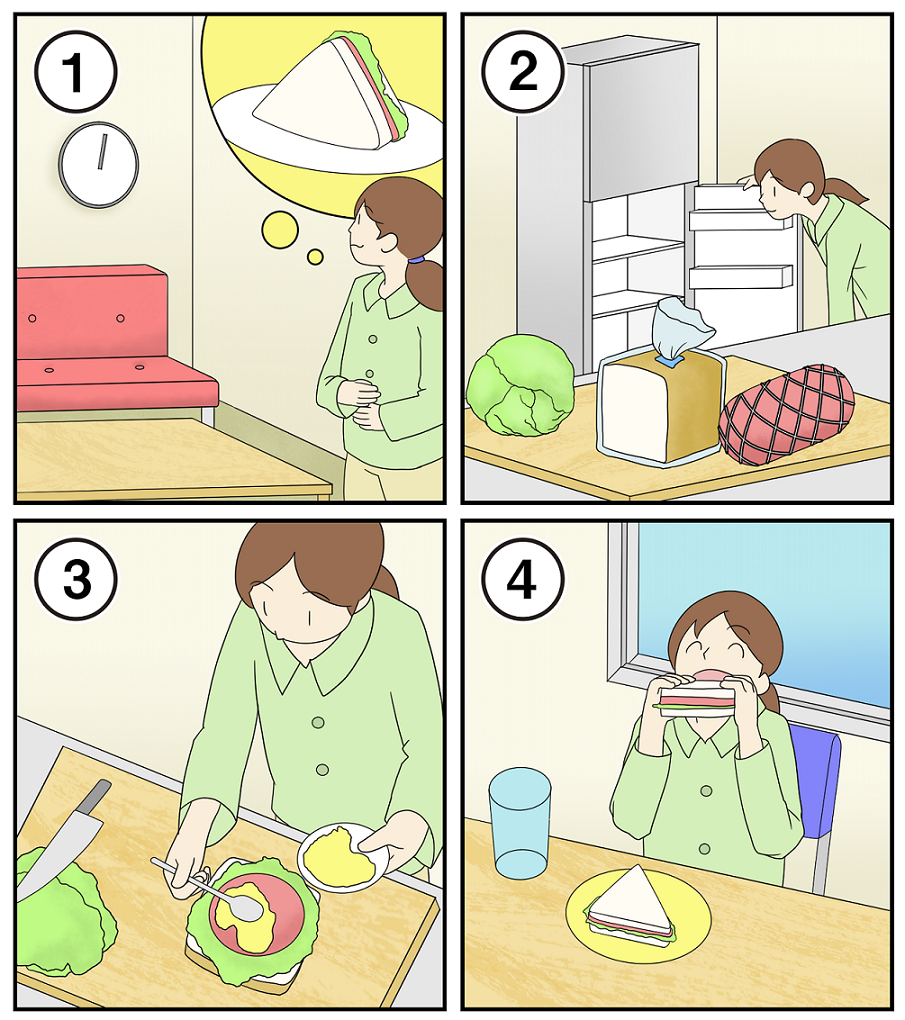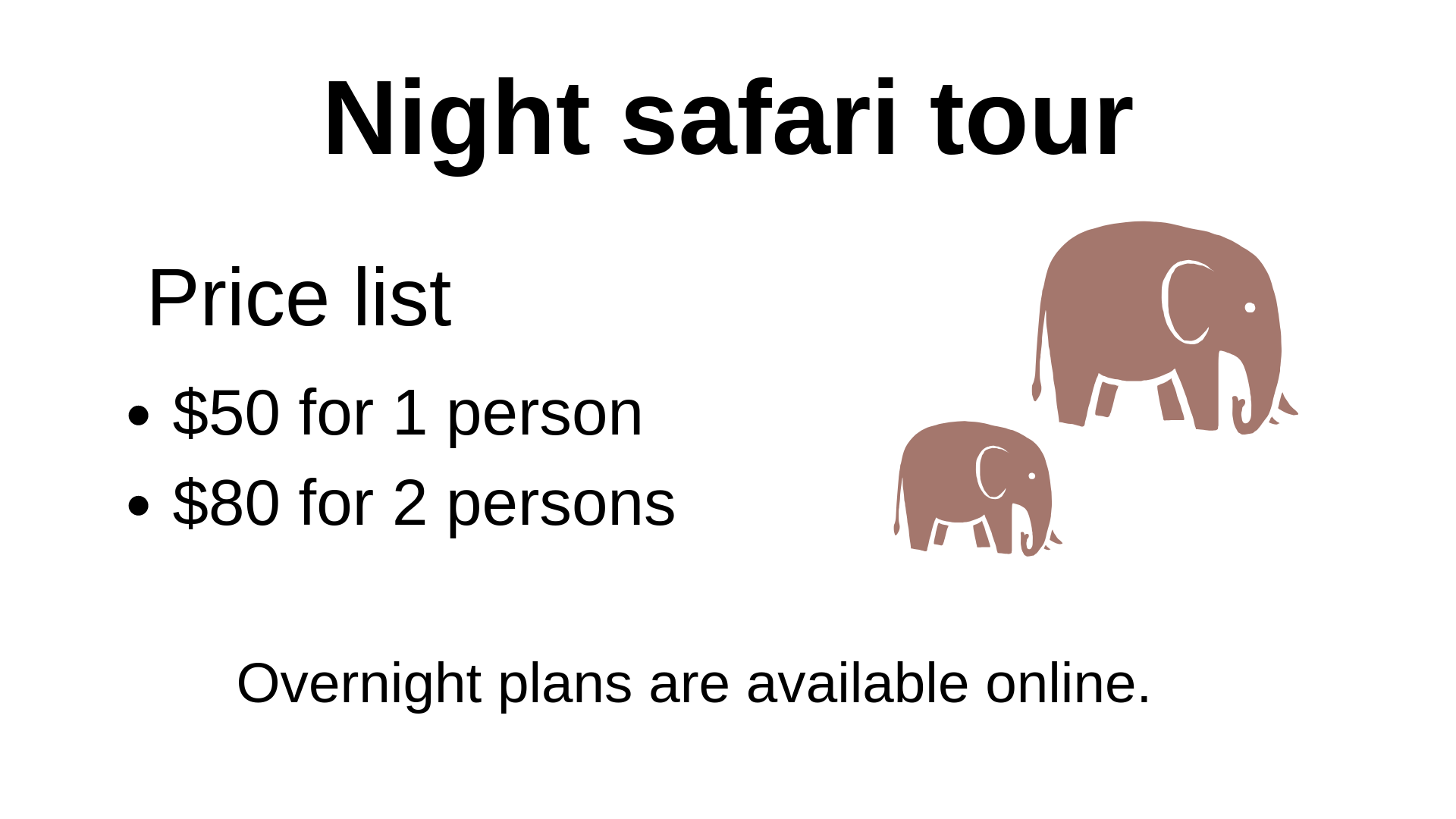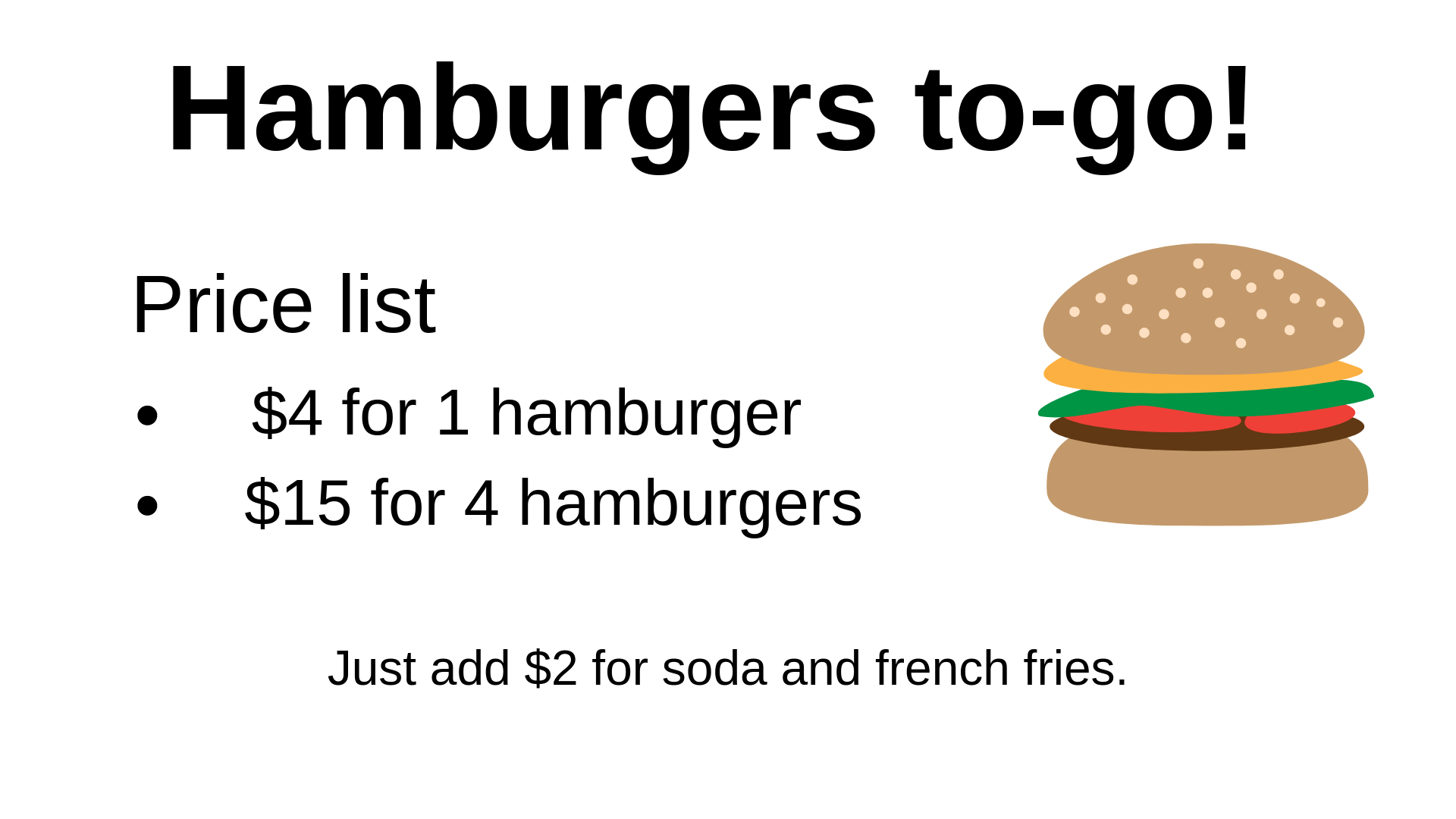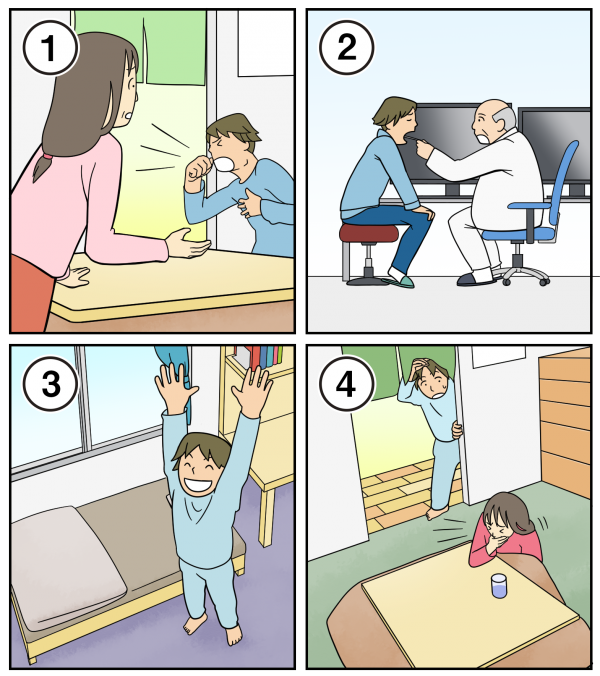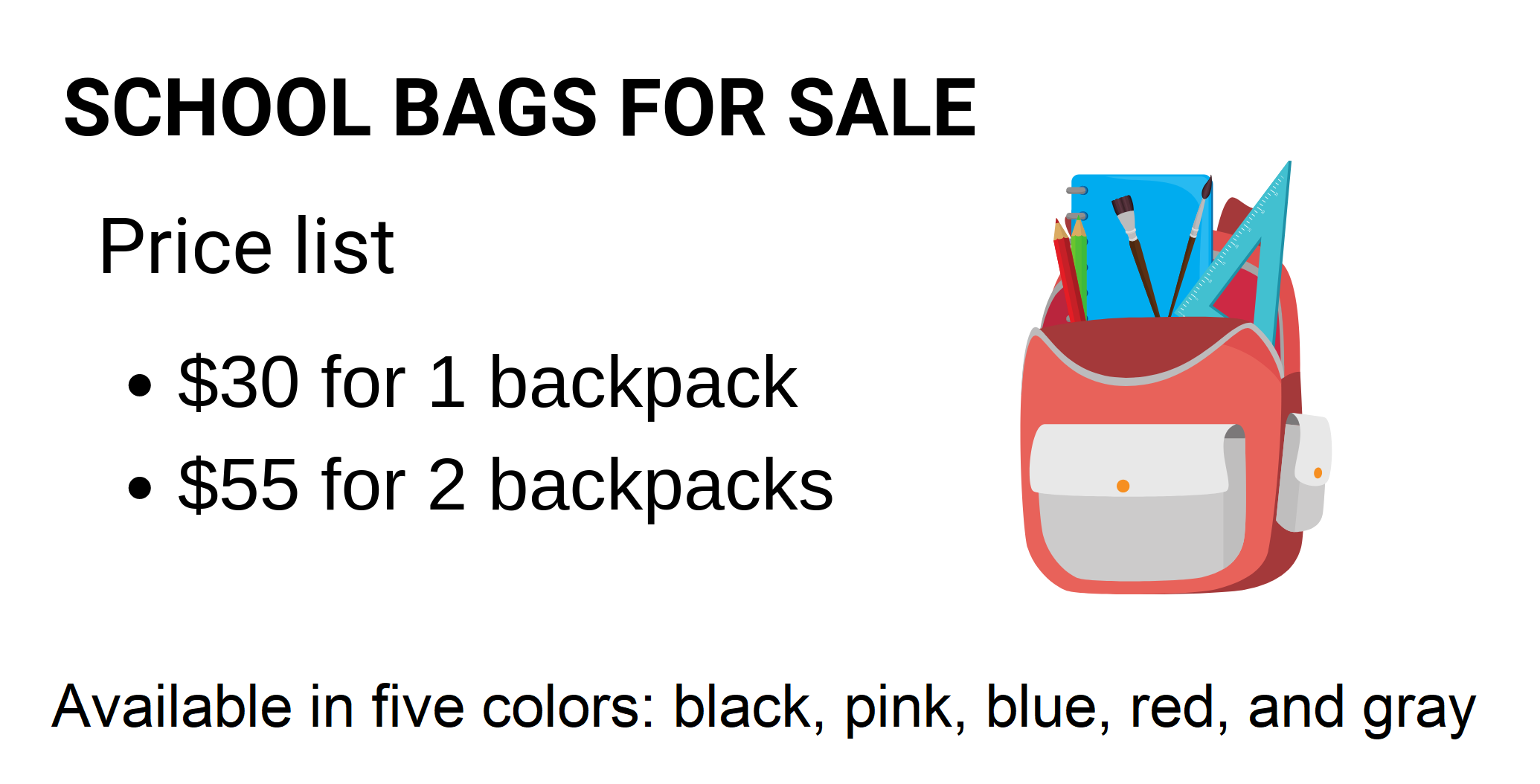PART A_1
Please read aloud the following passage. You have 30 seconds to prepare and 30 seconds to read aloud. I will check your pronunciation, stress, and intonation.
以下の文章を音読しましょう。準備時間は30秒、音読時間は30秒です。講師が発音、強勢、イントネーションについて確認します。
(Please send the mispronounced words and expressions to your student.)
PART A_2
あなたは留学中の生徒です。あなたは、校内放送で作家部が開催する図書展の案内をすることになりました。以下の文章を音読してください。
(You are studying in a foreign school, and you will make an announcement that the Writers’ Club will have a book fair. Read aloud the script below.)
Good morning, students. The Writers’ Club will have a book fair from 7:00 a.m. to 4:00 p.m. on May 16. Many kinds of books will be on sale at very low prices. Arrive at the fair early to get big discounts! Thank you, and see you there.
PART A_3
Now, let’s review some words and sentences from Part A_2.
ではいくつかの単語と文章を復習してみましょう。
(Please review the mispronounced words and expressions from Part A_2.)
PART A_4
PART A_5
Please read aloud the following passage. You have 30 seconds to prepare and 30 seconds to read aloud. I will check your pronunciation, stress, and intonation.
以下の文章を音読しましょう。準備時間は30秒、音読時間は30秒です。講師が発音、強勢、イントネーションについて確認します。
(Please send the mispronounced words and expressions to your student.)
PART A_6
あなたは留学中の生徒です。あなたは、校内放送でロボット博物館ツアーの案内をすることになりました。以下の文章を音読してください。
(You are studying in a foreign school, and you will make an announcement that the school will have a robot museum tour. Read aloud the script below.)
Good afternoon, students. There will be a robot museum tour on June 16 from 9:00 a.m. to 11:00 a.m. Students are encouraged to join the tour with one of their parents. For more information, please talk to your teachers. Thank you.
PART A_7
Now, let’s review some words and sentences from Part A_6.
ではいくつかの単語と文章を復習してみましょう。
(Please review the mispronounced words and expressions from Part A_6.)
PART A_8
PART B_1
You will answer the questions based on the information below.
You have 10 seconds to prepare and 15 seconds to answer each question.
You have 10 seconds to prepare and 15 seconds to answer each question.
以下の情報をもとに、質問にこたえましょう。準備時間は10秒、回答時間はそれぞれ15秒です。
PART B_2
あなたは学校で必要なものリストを見ています。リストをもとに、質問に英語で答えてください。
(You are looking at the school materials shopping list. Answer the questions based on the shopping list.)
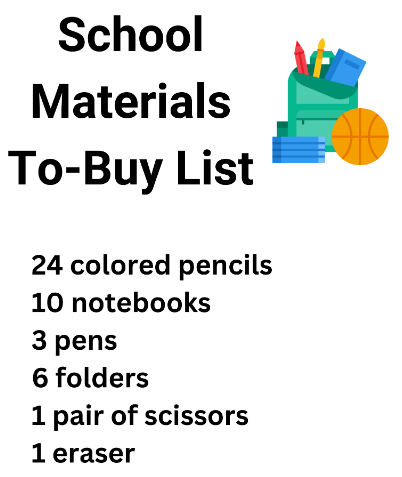
| 1. | How many notebooks should be bought? |
| Answer: | |
| 2. | How many pairs of scissors should be bought? |
| Answer: |
PART B_3
Now, let’s review your answers.
ではあなたの答えを復習してみましょう。
(Please review your student’s answers by sending the correct answers in complete sentences. You may also give tips.)
PART B_4
PART B_5
You will answer the questions based on the information below.
You have 10 seconds to prepare and 15 seconds to answer each question.
You have 10 seconds to prepare and 15 seconds to answer each question.
以下の情報をもとに、質問にこたえましょう。準備時間は10秒、回答時間はそれぞれ15秒です。
PART B_6
あなたはハンバーガーショップの案内を見ています。案内をもとに、質問に英語で答えてください。
(You are looking at the store hours of a hamburger shop. Answer the questions based on the store hours.)
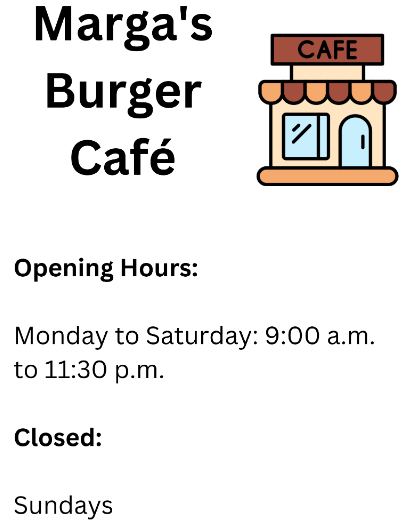
| 1. | What are the opening hours of Marga’s Burger Café from Mondays to Saturdays? |
| Answer: | |
| 2. | When is Marga’s Burger Café closed? |
| Answer: |
PART B_7
Now, let’s review your answers.
ではあなたの答えを復習してみましょう。
(Please review your student’s answers by sending the correct answers in complete sentences. You may also give tips.)
PART B_8
PART C_1
This is a story that the character experienced. Please pretend to be the character in the story and tell the story to me. You have 30 seconds to prepare and 40 seconds to answer. I will check if your sentences are complete and if the grammar is correct.
登場人物になったつもりで、出来事を講師に話しましょう。準備時間は30秒、回答時間は40秒です。講師は文法と完全な文章であるかを確認します。
PART C_2
先日あなたが経験した以下の出来事を、留学生の友人に話すことになりました。英語で伝わるように話してください。
(You will tell the story that you experienced to your foreign friend. Describe it in English.)
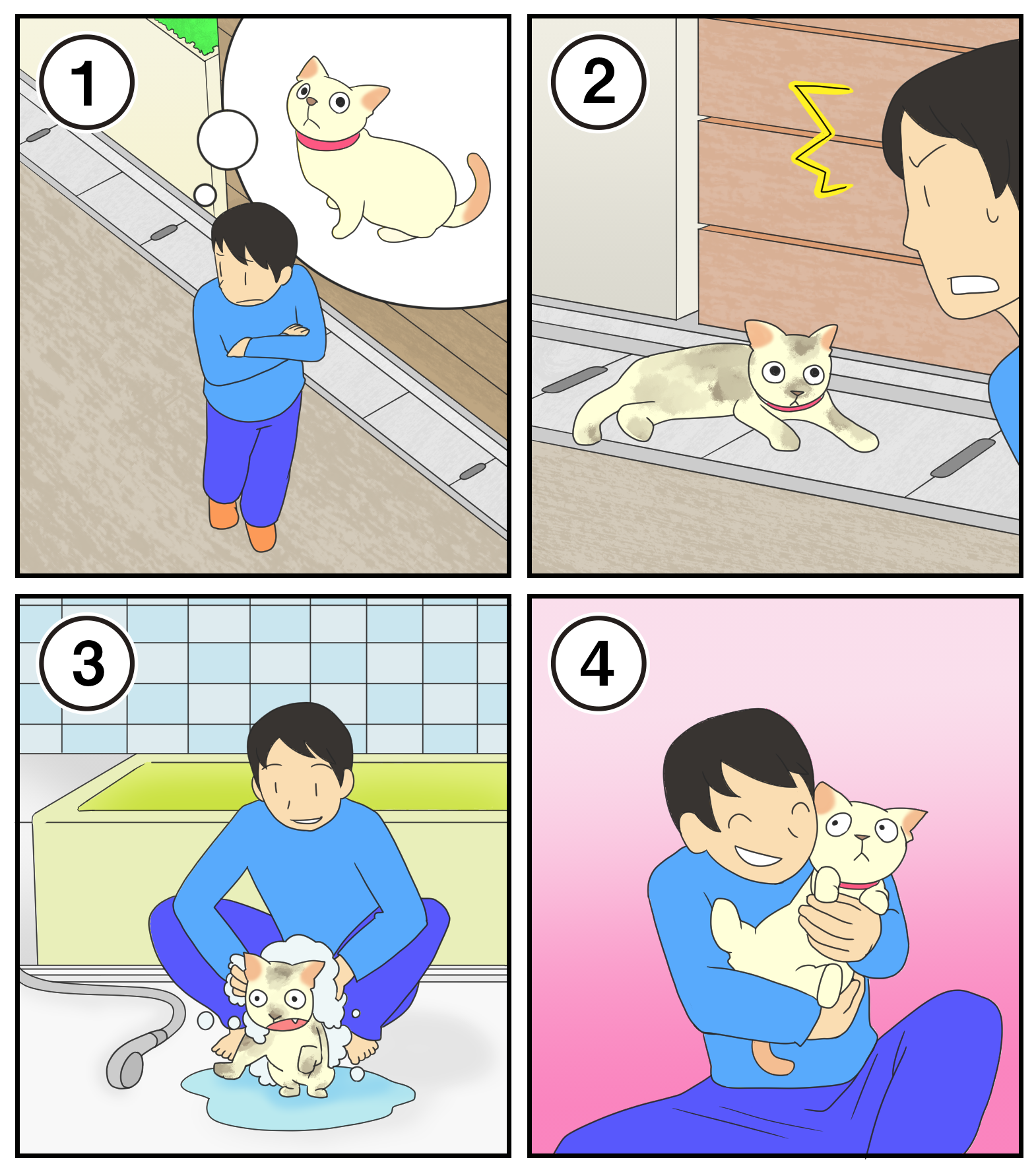
|
Answer:
|
PART C_3
Now, let’s review your answer.
では、あなたの答えを復習してみましょう。その後、修正したあなたの答えを読んでみましょう。
(Please help your student convey his or her answer effectively by using correct grammar and complete sentences. After that, ask your student to state his or her corrected answer.)
PART C_4
PART C_5
Now, we’ll read the sample answer. Please repeat after me.
では、講師のあとに続いて、模範解答を読んでみましょう。
PART C_6
Yesterday, I was outside looking for my cat. I found my cat in the street, and it’s dirty. I washed my cat at home. I hugged my cat after washing it.
PART D_1
Let’s study the example below. I will read the sample question, and you will read the sample answer.
下の例を見てみましょう。講師がサンプルの質問を読むので、あなたはサンプルの答えを読みましょう。
PART D_2
英語のクラスで以下のテーマについての意見を発表することになりました。自分の考えとその理由を具体的に、また相手に伝わるように説明してください。
(You will express your opinion about the following topic in English class. Tell your idea with supporting reasons.)
|
Sample Question:
|
What is your favorite event? Tell me your answer and give two supporting reasons. |
|
Sample Answer:
|
My favorite event is New Year’s Day. It is because everyone in our family goes to my grandparents’ house to celebrate together. Also, my grandmother teaches me how to cook traditional foods. I really like spending time with her. |
PART D_3
Express your opinion on the following topics. Give at least two reasons to support your opinion. You have 60 seconds to prepare and 40 seconds to answer.
2つ以上の理由をつけて、あなたの意見を表現してみましょう。準備時間は60秒、回答時間は40秒です。
PART D_4
英語のクラスで以下のテーマについての意見を発表することになりました。自分の考えとその理由を具体的に、また相手に伝わるように説明してください。
(You will express your opinion about the following topic in English class. Tell your idea with supporting reasons.)
|
Question:
|
What kind of movie do you like to watch? Tell me your answer and give two supporting reasons. |
|
Answer:
|
PART D_5
Now, let’s review your answer.
では、あなたの答えを復習してみましょう。その後、修正したあなたの答えを読んでみましょう。
(Please help your student convey his or her answer effectively. After that, ask your student to state his or her corrected answer.)
PART D_6
PART D_7
Now, we’ll read the sample answer. Please repeat after me.
では、講師のあとに続いて、模範解答を読んでみましょう。
PART D_8
The kind of movies I like to watch are thrillers. It’s because I grew up with parents who love to watch thriller movies. Also, watching thriller movies is exciting because my family and I can’t predict what will happen next.
PART D_9
Express your opinion on the following topics. Give at least two reasons to support your opinion. You have 60 seconds to prepare and 40 seconds to answer.
2つ以上の理由をつけて、あなたの意見を表現してみましょう。準備時間は60秒、回答時間は40秒です。
PART D_10
英語のクラスで以下のテーマについての意見を発表することになりました。自分の考えとその理由を具体的に、また相手に伝わるように説明してください。
(You will express your opinion about the following topic in English class. Tell your idea with supporting reasons.)
|
Question:
|
Why do you think it’s important to exercise? Tell me your answer and give two supporting reasons. |
|
Answer:
|
PART D_11
Now, let’s review your answer.
では、あなたの答えを復習してみましょう。その後、修正したあなたの答えを読んでみましょう。
(Please help your student convey his or her answer effectively. After that, ask your student to state his or her corrected answer.)
PART D_12
PART D_13
Now, we’ll read the sample answer. Please repeat after me.
では、講師のあとに続いて、模範解答を読んでみましょう。
PART D_14
I think it’s important to exercise because it makes our bodies healthy and fit. Also, experts say that when we exercise regularly, it improves our brain by helping us concentrate better and become more active at school and at work.
PART E_1
Now, let’s do a free talk about the following topics.
以下のトピックについてフリートークをしましょう。
(Please do a free talk if you have time left.)
PART E_2
What musical instruments do you play?
Which do you prefer, dancing or singing?
PART E_3


